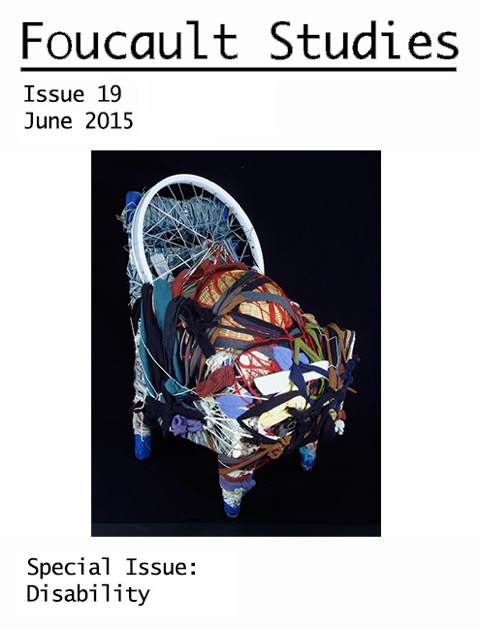Historical Epistemology as Disability Studies Methodology: From the Models Framework to Foucault’s Archaeology of Cure
DOI :
https://doi.org/10.22439/fs.v0i19.4827Mots-clés :
disability, historical epistemology, archaeology, History of Madness, cureRésumé
In this article, I argue for historical epistemology as a methodology for critical disability studies (DS) by examining Foucault’s archaeology of cure in History of Madness. Although the moral, medical, and social models of disability frame disability history as an advancement upon moral and medical authority and a replacement of it by sociopolitical knowledge, I argue that the more comprehensive frame in which these models circulate—the “models framework”—requires the more nuanced approach that historical epistemology offers. In particular, the models framework requires greater use of epistemology as an analytical tool for understanding the historical construction of disability. Thus, I turn to Foucault’s History of Madness in order to both excavate one particular archaeological strand in the text—the archaeology of cure—and to demonstrate how this narrative disrupts some of the key assumptions of the models framework, challenging DS to consider the epistemological force of non-medical fields of knowledge for framing disability and procedures for its cure and elimination. I conclude by arguing that DS must develop historical epistemological methodologies that are sensitive to the complex overlays of moral, medical, and social knowledge, as well as attend to the social construction of scientific and biomedical knowledge itself.Téléchargements
Publié-e
2015-06-17
Comment citer
Hamraie, A. (2015). Historical Epistemology as Disability Studies Methodology: From the Models Framework to Foucault’s Archaeology of Cure. Foucault Studies, (19), 108–134. https://doi.org/10.22439/fs.v0i19.4827
Numéro
Rubrique
Special Issue: New Work on Foucault and Disability
Licence
Authors retain copyright to their work, but assign the right of the first publication to Foucault Studies. The work is subject to a CC BY-NC-ND 4.0 license, but despite these restrictions, authors can take for granted that Foucault Studies will permit articles published in Foucault Studies to be translated or reprinted in another format such as a book providing a full reference is made to Foucault Studies as the original place of publication.



